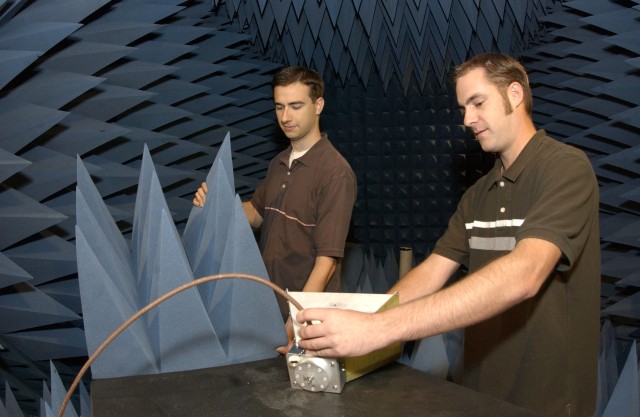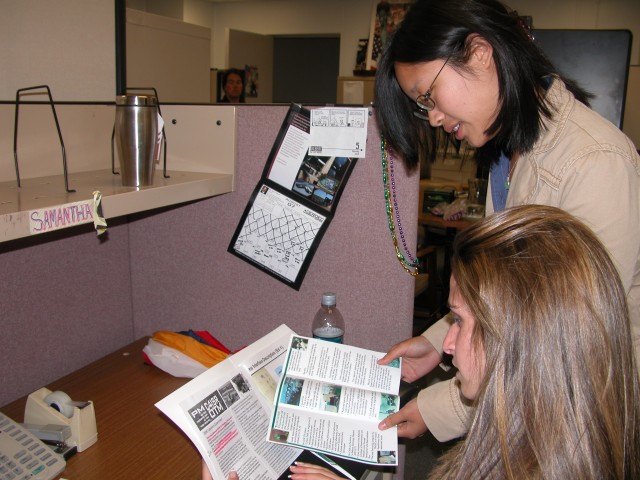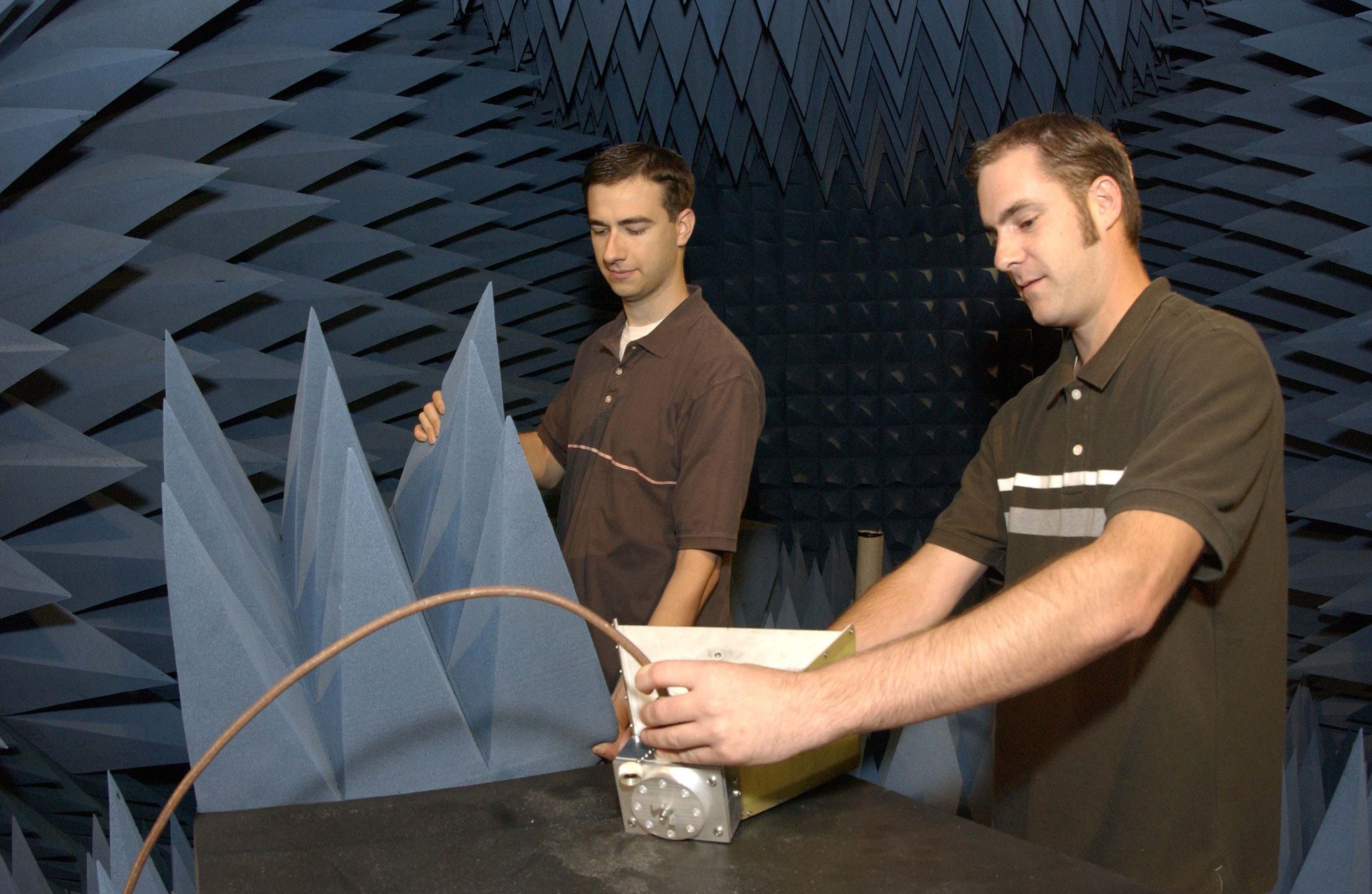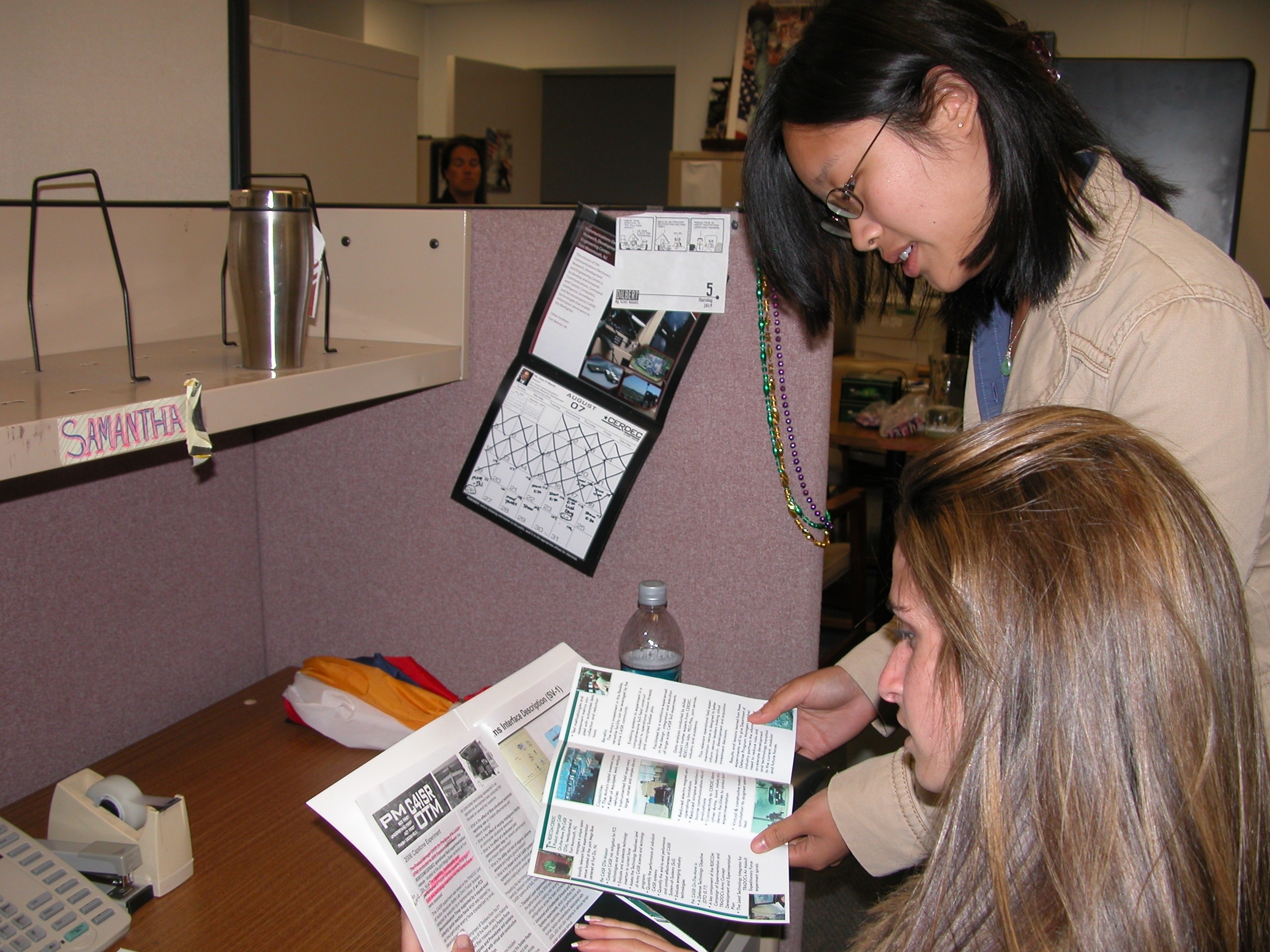FORT MONMOUTH, N.J. - Imagine starting your career before graduating college and having the opportunity of paid real- world experience in your desired career field with only a few college credits. It's almost like "getting your foot in the door" and taking the first steps along your chosen path. An Army-wide program called the Student Career Experience Program gives college students such an opportunity. The U.S. Army Communications-Electronics Research, Development and Engineering Center implements the program to expose students to the work civilians do here to support the Warfighter.
The program provides college-level students in good academic standing a paid position within their area of study while they attend school. It primarily focuses on students in the engineering or computer science field, but also pursues students in business and other majors as needed. Students have the opportunity to work under professionals in their field and get a glimpse of what their desired occupation is really like.
The SCEP is more than just a part-time or summer job, said Addie Rogers, program and management specialist and the CERDEC SCEP manager. Once students apply for a SCEP position they are guaranteed employment until graduation, or beyond, should they decide to stay as a local intern, she said.
"It's a good program. It's basically giving students the opportunity while they're in school to work and not have to reapply. That's a plus because every summer a student is looking for a new job, and everyone knows it's a pain to send out more resumes and fill out more applications. With this they apply one time and whenever they have a break from school and want to pick up some hours, they can just send their manager an email saying 'I'm coming back for this amount of time'," said Rogers.
The key letter in the SCEP acronym is "C" for career, Rogers said. "It's a trial and error. You get to try out a career and see if you like it before you actually commit. I think that's wonderful, because what paid job do you know that gives you that kind of opportunity' Not many," said Rogers.
Currently, CERDEC employs over 50 SCEP students in numerous positions, all working towards the same goal of supporting the Warfighter.
"I'm not serving, I'm not out there, but I am serving the Warfighter," said Chris Zarycki, electrical engineer with the Space and Terrestrial Communications Directorate and a sophomore at the Virginia Military Institute. Zarycki spent the past summer working in labs for the first time with Software Defined Radio, a universal radio that works with different types of frequencies, he said.
"This summer is going to help me for next semester. We did a lot of calculus work and I haven't taken calculus three or four at school yet so that helped a lot. There are a lot of intelligent guys here that are helping me out with different types of advanced math that I have never thought possible, and now I know how to do it," said Zarycki.
Shery Thomas, network engineer with S&TCD and Rutgers University senior, just started his work under the SCEP and has already been doing some hands-on work in the labs with tactical wireless technologies.
"It's great being introduced to all the new technologies that are out there. I don't think you'd be able to find that anywhere else. All the facilities and all the labs, it's all diverse and everyone has a lot of knowledge so to go for help is pretty easy, you can just go next door," said Thomas.
Samantha Altneu, a writer/video editor for the CERDEC Knowledge Center Content Information Office and New York University sophomore, has spent her summer informing the Fort Monmouth community of current CERDEC events.
"Some of the events that I have covered this year have been the CryptoModernization Technology Day, Joint User Interoperability Communications Exercise, and the CERDEC math and science summer camps," said Altneu. "Personally, I feel like I'm more informed about the Warfighter, as far as what's going on overseas, which is important information to know as a younger person working for the government. I feel like my writing skills have improved which will greatly help me in college. I also really enjoyed making videos and being able to be creative in the government," she said.
"While in SCEP, it's been real world experience and sort of taking what's in the academic sense and putting it to reality, more hands-on," said Michael J. Zalewski, mechanical engineer with the Command and Control Directorate and Norwich University junior. Zalewski has been with the SCEP for two years and has undertaken his own project of updating a piece of test equipment that was designed and developed at CERDEC in the 1980's, he said. When not working on his project, Zalewski assists experienced engineers with environmental testing, such as vibration shock and temperature shock.
"The best thing about my job is the real world experience. Because there is a lot of quick reaction in the group I work with and the fact most of our work gets fielded, it's more than just research and development, and it's more than just hypothetical. You know that shortly down the line, someone will be using the technologies. It makes me feel good," Zalewski said.
CERDEC has participated in the SCEP since the inception of the program December 16, 1994. New students are continually hired as graduating SCEP students begin full-time employment as government interns or do other work.
"I would say out of 10 SCEP students maybe eight or nine of them we convert to local interns," Rogers said. "It's a good program. We're flexible with hours, you're able to come on board making a decent salary, way more than you'd be making at say McDonald's or a retail store at the mall. Every time your academic status changes and you complete your work hours, you get promoted so you could very well be at school and when you come back for spring break you got a promotion because that's just the way the program works," she said.
"I think it's a good opportunity to learn a lot of new things, even if you only do it for one summer or whenever you can you'll still gain a lot from it and you'll get exposure to an environment different from what you'll see outside," said Thomas.
"I feel that the knowledge I've acquired has given me a greater respect for the troops overseas and I feel like my job, even though it's not a direct connection to the Warfighter, is helping the rest of the government learn what's going on and keeping them informed. I really had a great experience this summer with the SCEP program," said Altneu.




Social Sharing